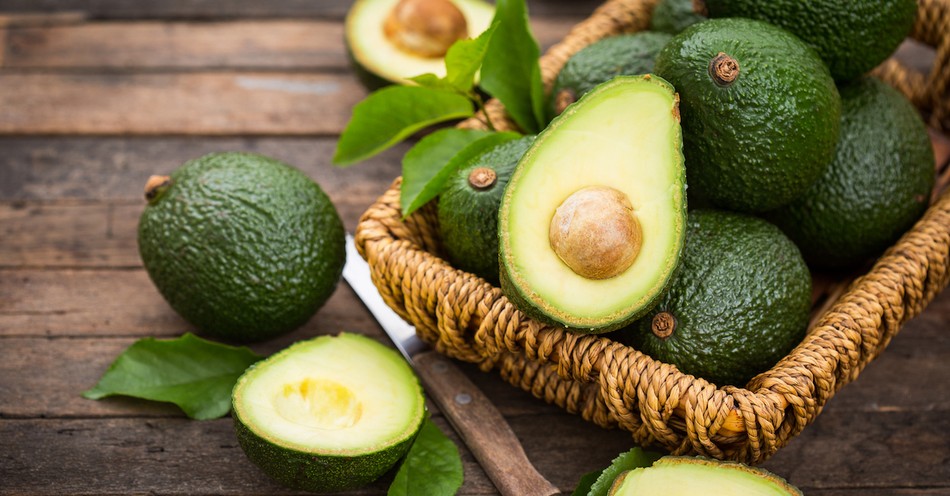Do you remember your first favorite Bible verse? When I was a kid, my favorite Psalm was Psalm 34 and my favorite verse was verse 8: "Taste and see that the Lord is good; blessed is the one who takes refuge in him.". I remember working on memorizing this Psalm on the playground at school. I loved the idea of tasting and seeing that the Lord is good. It felt so real and practical. My childhood was pretty great, but I struggled with being sick a lot and friendships were hard in my early years. But I could always count on God. He was good, even when my circumstances weren’t.
I’m going to turn 40 in a few months and Psalm 34 is still my favorite Psalm. It holds a special place in my heart as my first favorite piece of Scripture. Now that I’m all grown up, I want to go deeper and really understand what it means to taste and see that the Lord is good.
What Does it Mean to 'Taste and See that the Lord Is Good'?
Let’s look at the word taste first. The Hebrew word used here is ta`am and it means, “to taste, perceive, eat.” You’ll notice that these are active words. We are meant to fully experience the goodness of the Lord.
Ted Dekker gives a great example of this in his book, The Forgotten Way Meditations. On page 29 he writes:
You can know all about any person, but that doesn’t mean you know them. Even the demons know about God and it profits them nothing. You can know about an avocado and believe things about it by studying it and dissecting it and discussing it in a classroom ad infinitum. But you only know (as Jesus used the term) that avocado when you bite into it and taste it. A child can know the Father in this way, perhaps more easily than any adult, which is why Jesus said we must become like children, even infants, to know the Father and see that He is good.
When I was a child, I had fewer questions. Psalm 34:8 said to “taste and see that the Lord is good,” so I did. As adults, we tend to overthink things. The older I got, the more head knowledge I had about God. I went to Bible college, then seminary, and learned all the things. But somewhere in all the learning, I lost my sense of taste. I had to go back to the simplicity of my childhood and, as Ted Dekker would say, take a big ol’ bite of avocado. I had to once again taste, or experience, the goodness of the Lord.
How did I do that? By giving up control and understanding my unity with Jesus Christ. By allowing Him to work in and through me. By depending on Him instead of myself. The more I understood my identity with Christ, the more I could taste and see the goodness of the Lord.
Now let’s take a look at the word see. The Hebrew word used here is ra’ah. There are many meanings for this word, including: perceive, have vision, look at, observe, look upon, gaze at, to cause to look intently at and to look at each other, face.
Do you get a picture of what it means to "tastes and see that the Lord is good"? We can’t see that He is good unless we’re looking at Him. And it’s not just a glance every now and then; it’s a gaze. We’re to fix our eyes on Him. I love the intimacy of the last definition above. To look at each other, face. Wow, that’s powerful! The Lord desires a close and intimate relationship with us. His desire is for us to taste and see that He is good, to experience Him fully and intimately.
Where Else Does Scripture Use the Sense of Taste?
The word ta`am is used in 10 other places in Scripture. One of the most popular stories is found in 1 Samuel 14 where the word is used three times. King Saul commanded the men of Israel to refrain from eating until he avenged himself of his enemies, so none of the men tasted food. His son Johnathan, however, did not hear his father’s declaration and ate some honey to revive himself. After tasting the honey his eyes brightened. The honey refreshed him and gave him strength.
If a taste of honey can revive and strengthen a person, how much more can a taste of the Lord? When we encounter Him, we leave revived and strengthened, ready to face our challenges together instead of on our own.
What Is the Context of Psalm 34:8?
Psalm 34 was written by David under the most unique circumstances. King Saul was out to get David, so David escaped to the land of the Philistines where he was captured and brought before the king. David resorted to extreme measures to be dismissed by the king unharmed—he feigned insanity.
The Psalm begins with praise and gratitude for God’s protection. Then we come to our key verse, which is followed by David encouraging others to fear (or have a righteous awe of) God and to seek Him. Ironically, he tells people to be honest if they desire to live a long life, then encourages them to turn from evil and seek peace. He remarks on the Lord’s attentiveness to us and reminds listeners the Lord is close to the brokenhearted. He packs no punches at the end of the Psalm, declaring the righteous person will have many troubles, but God is able to deliver them from trouble. He ends with a statement that God will rescue His servants.
The angel of the LORD encamps around those who fear him, and he delivers them. Taste and see that the LORD is good; blessed is the one who takes refuge in him. Fear the LORD, you his holy people, for those who fear him lack nothing. The lions may grow weak and hungry, but those who seek the LORD lack no good thing. Psalm 34:7-10, NIV (emphasis mine)
How Do We Know God Is Good?
How do we know that God is good? That’s the question, isn’t it? How do we know He can be trusted with our fragile hearts?
First, the Bible tells us God is good. Luke 18:19 says, “‘Why do you call me good?’ Jesus answered. ‘No one is good—except God alone.’”
Second, if we have a relationship with God, He works for our good. Romans 8:26-29 says, “In the same way, the Spirit helps us in our weakness. We do not know what we ought to pray for, but the Spirit himself intercedes for us through wordless groans. And he who searches our hearts knows the mind of the Spirit because the Spirit intercedes for God’s people in accordance with the will of God. And we know that in all things God works for the good of those who love him, who have been called according to his purpose.” (Emphasis mine.)
There’s no doubt about it, we will experience hard things in life. Trials and tragedies and things that feel so unfair will bombard us when we least expect it. We will be tempted to take matters into our own hands. We may even be tempted, like Job’s wife instructed, to “curse God and die.” But Job didn’t curse God and die. He remained faithful by trusting God and we can do the same.
When trials and temptations come, we can choose to taste and see that the Lord is good. We can fix our eyes on Jesus, look Him in the face, and experience His goodness and love. We can wait on the Lord to intervene in our circumstances and experience Him by spending time with Him in prayer and by reading His Word, the Bible. We can remember all of the times He has provided for us in the past and all of the ways He has been good to us throughout our lives. Let’s stop overthinking things and remember our childlike faith. By doing so, we really can taste and see that the Lord is good!
A Prayer to Taste and See That the Lord is Good
Father, I have tasted and seen that you are good. I have tasted the finest delicacies this world can offer, and they cannot compare to you. Your presence satisfies me like nothing else. You give more joy and deeper joy than anything else in this world. One day in your courts is better than a thousand days elsewhere. One moment with you is better than a thousand lifetimes anywhere else. Please give me more tastes of your presence, more glimpses of your glory. Expand my heart to love you more, and then take me deeper into the vast ocean of your love. Your love is better than life itself.
I want to seek you above all else, knowing that if I seek you, I won’t lack any good thing. You are not a stingy God who is hesitant to bless his creatures. You are an abundantly generous God. Like a constantly flowing spring, you bubble over with goodness and generosity. If you clothe the lilies in splendor and feed the ravens, you will certainly provide me with everything that I need. If something is good for me, you will give it to me. If it is not good, you will withhold it. I know that I can trust you to give me exactly what I need for every situation. Ultimately, I don’t know what I most need, but you do. I don’t trust in my own ability to meet my needs, I trust you to meet all of my needs. Amen (by Stephen Altrogge)
Further Reading
What Does ‘Taste and See That the Lord Is Good’ Mean?
10 Ways to Incorporate the Verse "Taste and See That the Lord Is Good" into Your Everyday Life
Photo credit: ©GettyImages/pilipphoto

This article is part of our larger resource library of popular Bible verse phrases and quotes. We want to provide easy to read articles that answer your questions about the meaning, origin, and history of specific verses within Scripture's context. It is our hope that these will help you better understand the meaning and purpose of God's Word in relation to your life today.
No Rest for the Wicked
Fight the Good Fight
Wait on the Lord
With Contrite Heart and Spirit
Faith Can Move Mountains



